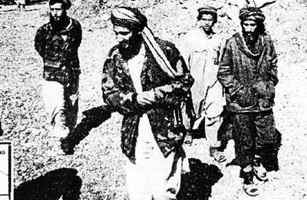
Nov. 24, 1989
The explosion was so powerful it was heard several miles away, and its reverberations would eventually travel around the globe. The car was nearing its destination, the al-Falah Mosque in the Pakistani frontier city of Peshawar, when it hit the land mine. All four passengers in the vehicle — a father with his two young sons and another youth — were killed. Chief among the dead that Friday was Sheik Abdullah Azzam, 48. It was the second attempt on his life. Earlier in 1989 a bomb was planted beneath the pulpit of a mosque where he was supposed to preach and pray, but the bomb did not explode. Azzam, a Palestinian, was the most prominent advocate of a jihad to save the Muslim lands from infidel encroachment. Thanks in part to his writings and diatribes, Islamic fighters from around the world traveled to Afghanistan to defeat the Soviet Union.
Azzam's killers have never been identified. But the man who gained the most from his demise was his deputy, Osama bin Laden, who took over the role of first among the jihadis. The Saudi aristocrat had been the chief financier of Azzam's organization and a devoted follower since the early 1980s, when he came under Azzam's influence while studying at Jeddah University. Disagreement between master and protege over the shape of a post-Soviet Afghanistan led to a parting of ways in early 1989, and soon bin Laden went off to found al-Qaeda. With Azzam dead, bin Laden assumed ideological seniority in the movement. He would expand the struggle from Muslim territory deep into the heart of the West itself.